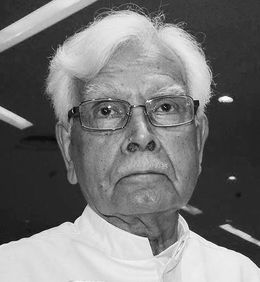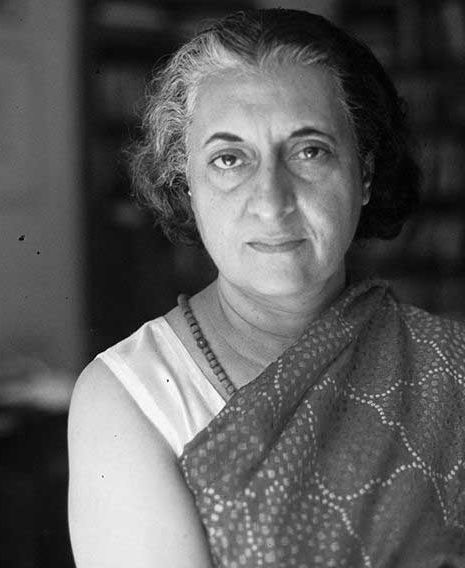
In 1975, the population of India was well below one billion. Nearly 40 per cent of Indians living today were not born in 1975. In their minds, this assault on Indian democracy arouses neither unbridled anger nor interest. The 40th anniversary of the Emergency will not agitate them.
It does arouse strong feelings among those who lived through it. The “literature” on the Emergency is vast. P.N. Dhar was Indira Gandhi's principal secretary during the Emergency. In his authoritative book, Indira Gandhi, the 'Emergency' and Indian Democracy, he wrote, “The Emergency that was declared in the early hours of June 26, 1975, was a severe setback in the political evolution of India. Under the new dispensation, the rule of law was drastically abridged: citizens were deprived of their fundamental rights; freedom of the press was curbed through strict censorship, political dissent was suppressed through arrests and harsh police measures; and officials assumed arbitrary powers, which they exercised without being accountable. These events changed the basic relationship between the citizen and the state, and the character of the Indian state itself.”
I was deputy high commissioner in London from November 1973 to August 1977. At the end of May 1975, Indira Gandhi was in Kingston, Jamaica, for the Commonwealth summit. I, too, was a member of her delegation. On her way back to India, she was scheduled to spend two days in London. This she could not do. On June 1, Sarojini Naidu's daughter Padmaja Naidu passed away. The prime minister immediately decided to leave for Delhi.
On June 12, Justice Jagmohan Lal Sinha of the Allahabad High Court delivered his judgment, setting aside Indira Gandhi's election to the Lok Sabha in 1971 from Rae Bareli. In London, the charges made by Justice Sinha were not taken seriously. John Grigg, a well-known author and columnist, compared the charges to a violation of traffic rules. He even wrote in the New Statesman along those lines.
All hell broke loose on June 26, when news came that Emergency had been declared. B.K. Nehru, the high commissioner, and I were stunned. Not one newspaper or TV channel spared Indira Gandhi. In the UK, the Labour party government, too, did not give her the benefit of the doubt. The Times, London, carried a full-page advertisement condemning the Emergency and the arrests of hundreds of prominent national leaders. It carried the names of well-known friends of India, including Fenner Brockway, Mrs Harold Laski, Lady Cripps and Dame Sybil Thorndike. The signatories came from all walks of life and from every corner of the UK. Amnesty International and the Socialist International, particularly, mentioned the names of Jayaprakash Narayan and George Fernandes.
Three months after the Emergency was declared, I wrote to the prime minister. I said it was my hope that the Emergency would be of a short duration. I added that while I knew what to say to our critics, I did not know what to say to our UK friends. Uncharacteristically, she did not respond. At a reception given by Her Majesty the Queen at Buckingham Palace, Lord Mountbatten said loudly to B.K. Nehru and me, “You have locked up all my friends.” Among them were the maharanis of Gwalior and Jaipur.
 Brickbat magnet: Not one newspaper or TV channel in the UK spared Indira Gandhi after Emergency was declared in India, says Natwar Singh | Getty Images
Brickbat magnet: Not one newspaper or TV channel in the UK spared Indira Gandhi after Emergency was declared in India, says Natwar Singh | Getty Images
The most ardent condemnation came from the irrepressible Fenner Brockway, Labour MP. An outspoken friend of India, he had known Mahatma Gandhi and Jawaharlal Nehru and had vociferously supported our freedom movement. He was particularly outraged by JP's detention. I decided to meet him. Even before I could say a word, he literately let me have it. “How long have you known JP?” I said I had met him a few times, but could not claim intimacy. I did, nevertheless, held him in high regard, but could not support him at this time. Fenner came out with all guns blazing. He said, “You people had sent him to London to put across India's views on the atrocities being committed by Pakistan against East Pakistanis. I had arranged a meeting between him and Labour and Conservative members of parliament. JP had spoken with feeling and sincerity. His presentation was convincing. His speech had made a very favourable impression. Now you tell me he is a traitor? No one believes you.”
It would have been counterproductive to get into an argument with him. Before leaving, I suggested that he write to Indira Gandhi along the lines of what he had said to me. His letter arrived a few days later. I forwarded it to the prime minister through category A of the secret diplomatic bag. She did not reply.
A majority of the Indian community in the UK was vehemently opposed to the Emergency. Many had acquaintances in Parliament and the media. Several demonstrations were held opposite India House, a well-known establishment in London. The media covered these protests. One day, B.K. Nehru had to leave the building through the back door to avoid being 'gheraoed'. All our efforts to placate the British media failed, particularly after the Indian government closed the office of the BBC in Delhi.
Unexpected side effects of the Emer-gency emerged. I used to regularly review books for the New Statesman, a left-wing weekly that had been friendly to India. The editor, Anthony Howard, removed my name from his list of reviewers.
I am not writing about the socio-economic consequences of the Emergency. These did not attract much attention in the UK. The adamantine fact was that, in spite of all our efforts, we could not “sell” the Emergency in the UK. Too many Britons had historical links with India and could not be deceived.
As a diplomat, it was my duty to justify the policies of my government. But the strain and tension of doing so became my daily companion. What B.K. Nehru and I were doing was to justify the unjustifiable, selling the unsellable, promoting the unpromotable and legitimising the unlegitimisable. And, in the process, I was disregarding my conscience. It is one period of my life which did me little credit.
Singh is former external affairs minister.






